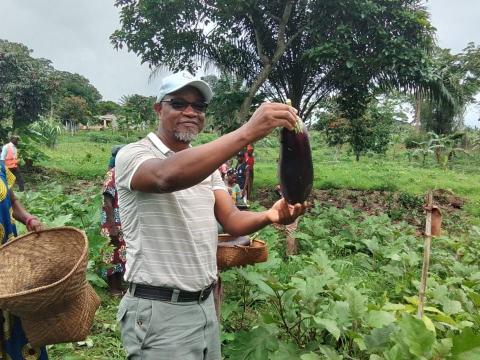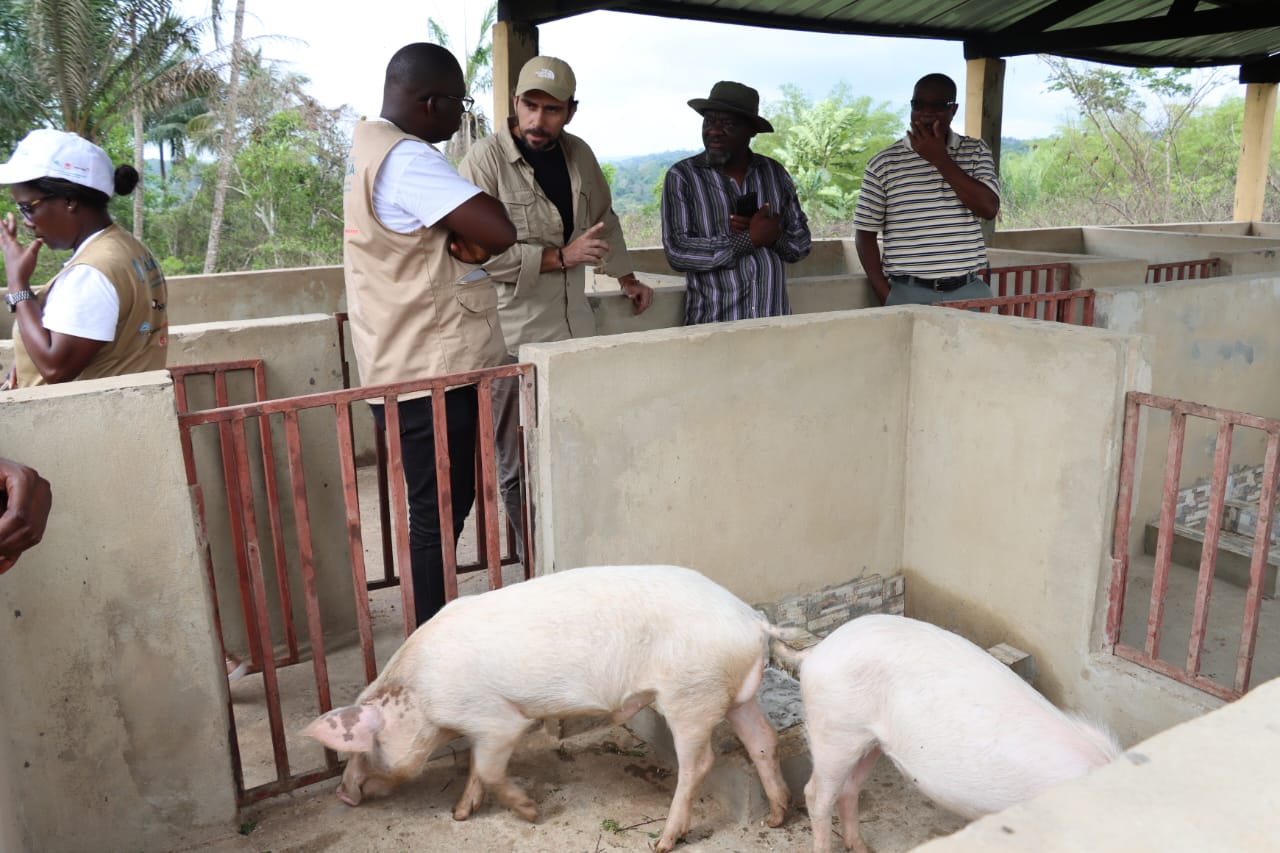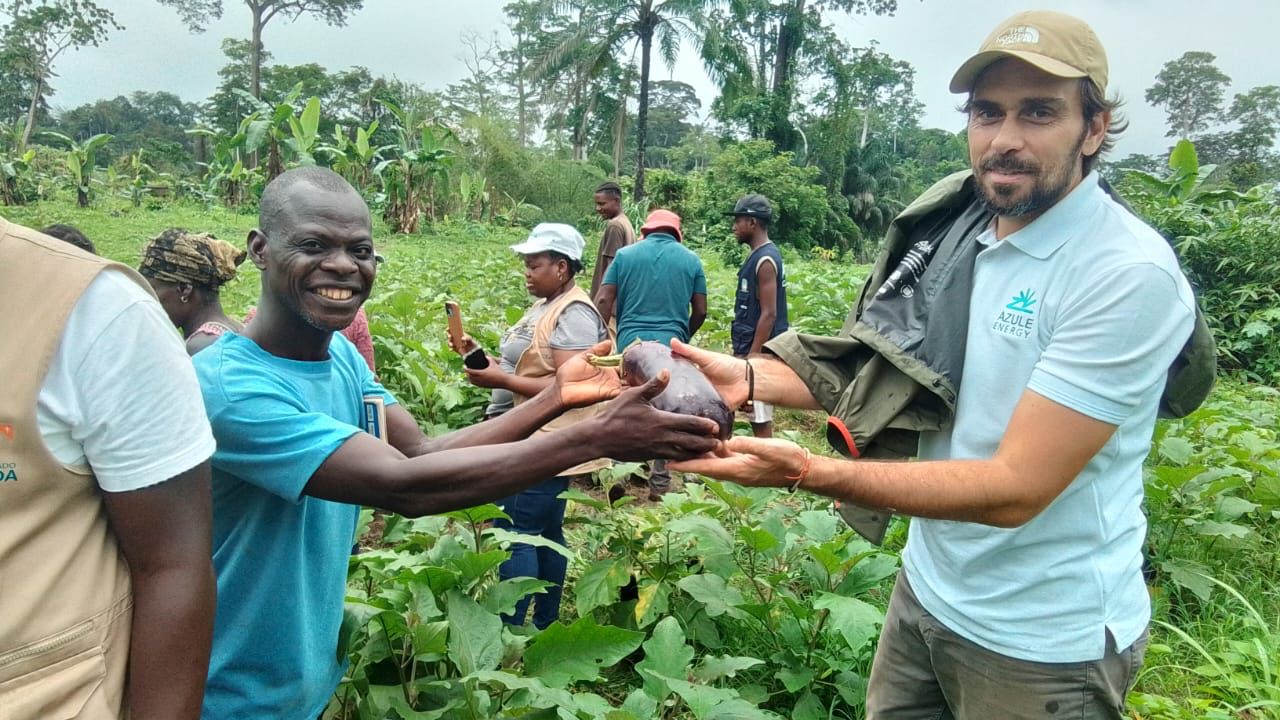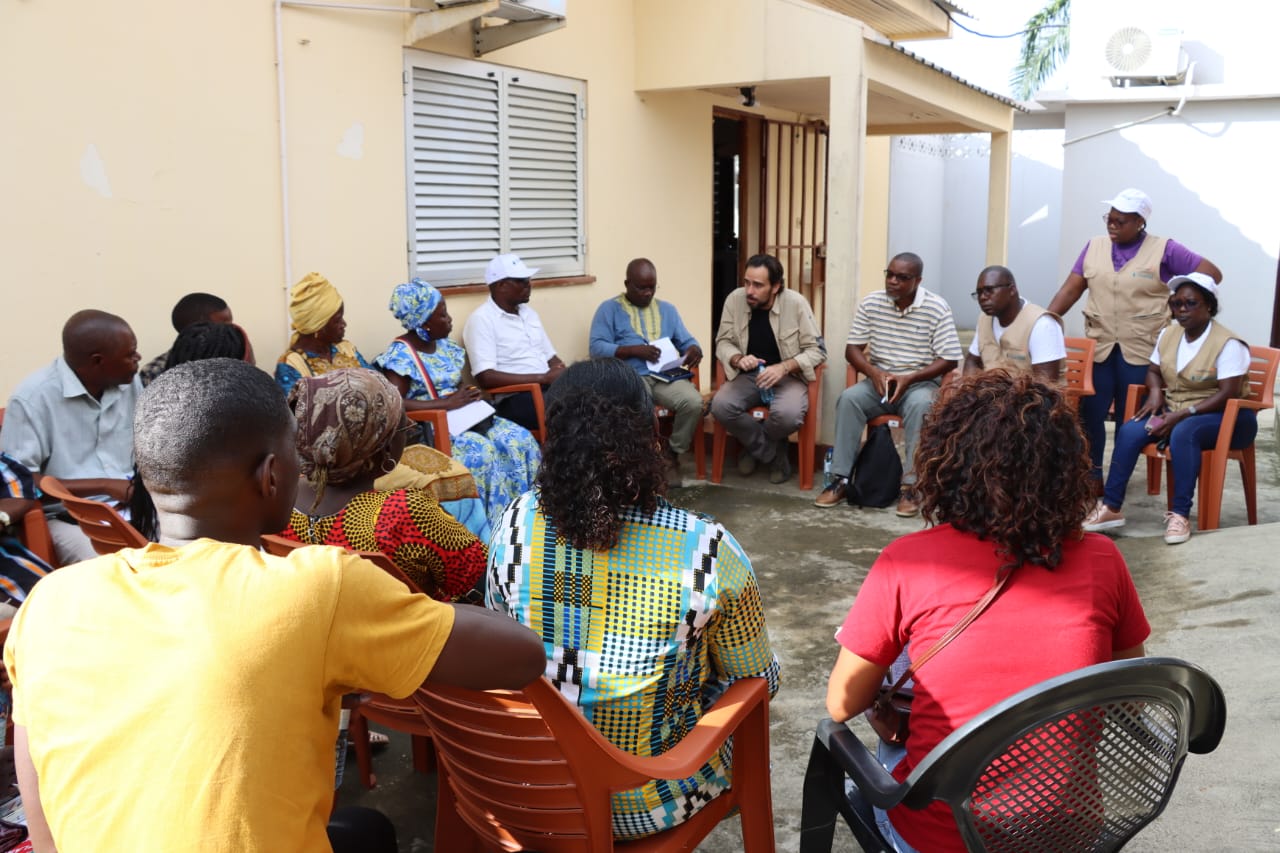Transformative Impact of the Cabinda Integrated Project Supported by AzuleEnergy

Between 6 and 11 November, the Cabinda Integrated Project (PIC) received a monitoring and verification visit from representatives of AzuleEnergy, the financiers of the work plan coordinated by VIS Angola and implemented by World Vision in the province.
The positive results obtained so far have marked the entire agenda, which includes monitoring harvests in rural schools, works to revitalize schools and water points, visits to cooperatives and the distribution of school meals, and has provoked smiles of satisfaction from all sides: both among the beneficiaries and among the VIS Angola, World Vision Angola and AzuleEnergy teams.

The visitors were invited to take part in the lively eggplant harvest at the Field School in Buco Zau, and were impressed by the quality of the produce, the result of fertile soil combined with the implementation of the correct agricultural practices that have been shared by the project's technicians over the last few months.

"It's very gratifying to see that the farmers are getting high-quality produce after the PIC activities began. The technicians' work has been excellent", emphasized Giuseppe Anania, AzuleEnergy's representative.

In all, 54 field schools have been identified in the province, 31 of which are already receiving interventions from the PIC's agricultural technicians, benefiting 541 people, including men and women trained in the process of transitioning from subsistence farming to market-orientated production and family sustainability.
The development of communities in the province's four municipalities is accelerating with the implementation of the PIC. Cabinda, Buco Zau, Cacongo and Belize have benefited from actions that have improved the quality of life of the most vulnerable families, reducing food insecurity and the multidimensional poverty indices that affect the region.
All the activities of the Cabinda Integrated Project have directly benefited:
- 700 young adults and young people receiving literacy and literacy classes;
- 3,000 direct beneficiaries of access to water through the installation of multipurpose water systems and the creation of water and sanitation committees;
- 70,000 children under the age of 5 screened for nutrition;
- 5,000 children included in the school nutrition program;
- 4,500 among small farmers and local association members.